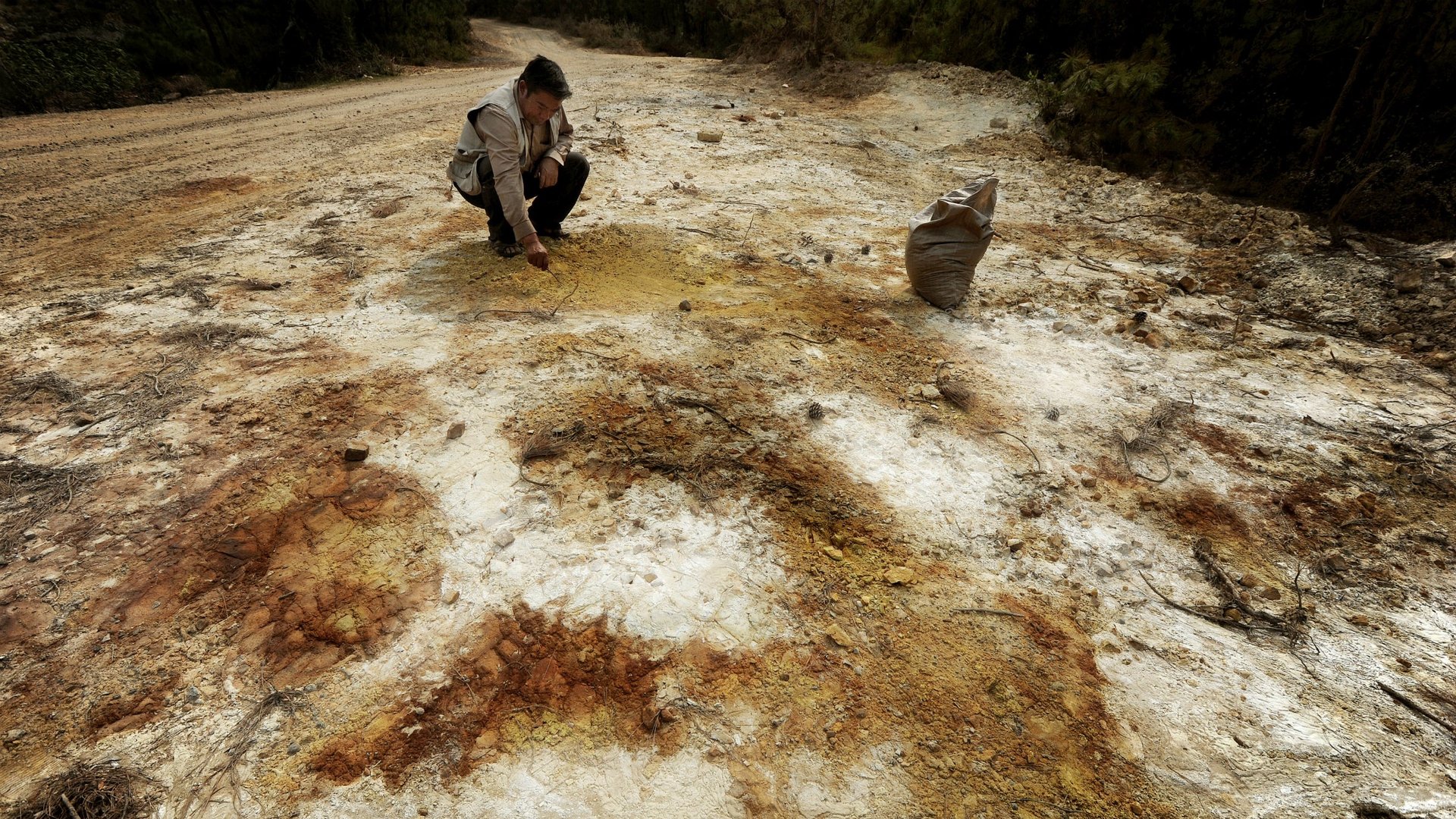China’s poisoned soil is widespread, and a state secret—so citizens are mapping it themselves
China is planning to conduct an in-depth nationwide soil pollution survey, government officials said on Wednesday evening, in an attempt to gauge just how contaminated its land has become. The announcement follows a recent scandal in which almost half the rice in Guangzhou was poisoned with cadmium.


China is planning to conduct an in-depth nationwide soil pollution survey, government officials said on Wednesday evening, in an attempt to gauge just how contaminated its land has become. The announcement follows a recent scandal in which almost half the rice in Guangzhou was poisoned with cadmium.
China conducted an annual environmental report recently but the public was offered worryingly little information because Beijing classifies soil pollution a “state secret.” The data that has been published suggests that fast economic growth has had a heavy cost. An environmental official said in April that as much as 65% of fertilizer was used improperly, polluting fields and rivers. Some researchers say that up to 70% of China’s soil is polluted.
The human cost of such pollution is only beginning to be measured. A joint paper by a Chinese research body and the World Health Organization reported on Thursday that over 3 million new cancer diagnoses are reported each year—one every six minutes—and 60% of those are avoidable. Researchers made the distinction between rich and poor cancers, with the latter afflicting mostly low earners in the countryside exposed to poor diets, nutrition, safety and—crucially—pollution, which they admit may have been underestimated as a cause. An award-winning investigative report published in the Guardian describes how housing developments are routinely built on poisoned land, threatening the health of residents.
Chinese leaders do seem intent on cleaning up their country’s sorry environmental record, particularly as public anger grows. A comprehensive soil pollution survey will help city planners avoid dangerous areas, for example, and target clean-up efforts. But unpublished research can only do so much. How does a farmer avoid a particular patch of polluted land if he doesn’t know it’s there?
One Chinese entrepreneur thinks he may have the answer. With charitable help from internet company Alibaba, Liu Chunlei started a website last year called Danger Maps, which plots all available pollution data on an online map. The project now allows users to add their own information—the location of a local landfill, for example, or results from independent NGO research. Danger Maps may be able to fill a hole left by the absence of government data, but it has limits. So far, Beijing has deliberately neglected to mention when or whether the results of its soil pollution survey will be made available.